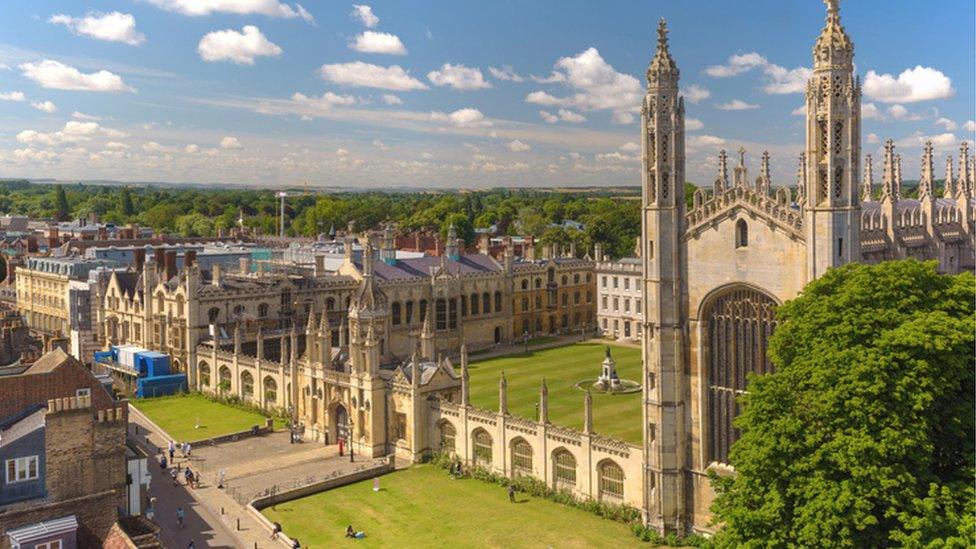Cambridge congestion charge: MPs clash in BBC Politics East debate
- Published
Cambridge MP Daniel Zeichner said the congestion charge proposal represented an opportunity
Action is needed to solve transport problems in Cambridge but plans for a city congestion charge faces opposition, a BBC Politics East debate has been told.
The Greater Cambridge Partnership, external (GCP) - a body that includes three local councils, businesses and the University of Cambridge - has proposed what it calls a sustainable travel zone, covering most of the city.
Vehicles that drive in the zone between 07:00 and 19:00 on weekdays will have to pay a daily charge of at least £5.
The money raised will be used to pay for a £50m bus network expansion, aiming to create a "London-style" service, as well as improving infrastructure for walking and cycling.

The BBC Politics East debate, held at the The Perse School in Cambridge, included representatives of the Conservative Party, Green Party, Labour and Lib Dems. An invited audience was also present.
Peter Blake, GCP transport director, said: "We live in a very successful environment. It's a great place to live, work and get educated."

What GCP say the plans would lead to
An extra 20,000 journeys made by bus
The number of car trips in Cambridge cut by 50%
Carbon emissions from transport reduced by about 5%
10,000 additional park and ride spaces provided around the city

But that has created "challenges" around congestion and its impact on the environment.
"These are the potential solutions," he said.
Some think the congestion charge would put people off working in Cambridge
He said the key element to the proposals was to to "significantly" improve the bus network, making it "an awful lot cheaper" and more reliable.
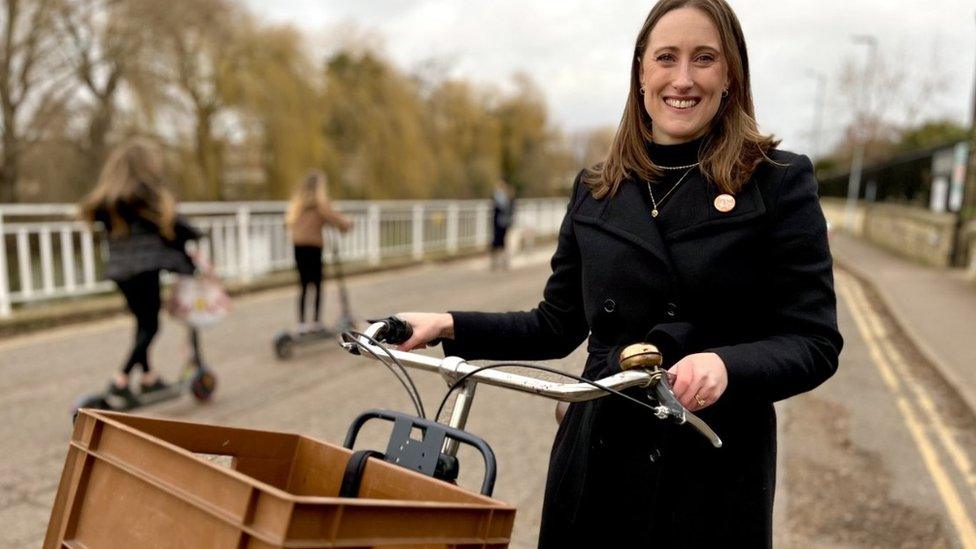
Roxanne De Beaux, executive director of Camcycle, supported the new zone plans
Roxanne De Beaux, executive director of Camcycle, supported the plans.
She said: "We need the sustainable travel zone to reduce the number of cars on our roads and provide the space and funding we need to improve our public transport and our walking and cycling infrastructure.
"We need fairer choices for all, no matter what form of transport they choose. If not now, then when? It's time to create a sustainable travel zone for Cambridge."
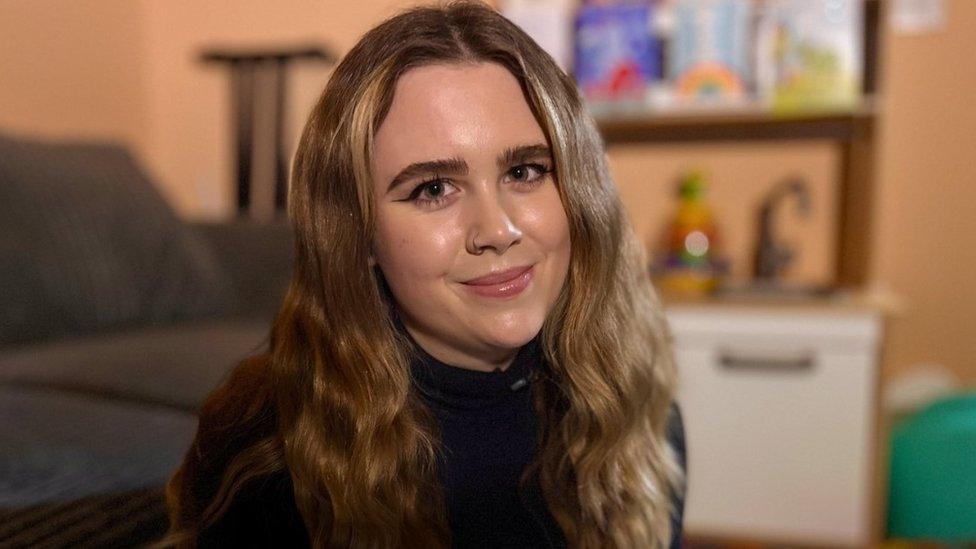
Mother Lucy Kingsford, who lives in Hauxton, just outside Cambridge, opposes the plans
Mother Lucy Kingsford, 22, from Hauxton, near Cambridge, opposes the plans and said the charge would leave her and her son "socially isolated".
"I live just outside Cambridge with my son Leo and I have to drive into the city daily to go to work, to see my friends and family, to take my son to nursery," she said.
"I could not afford to pay the congestion every day and this would leave me and Leo really socially isolated."
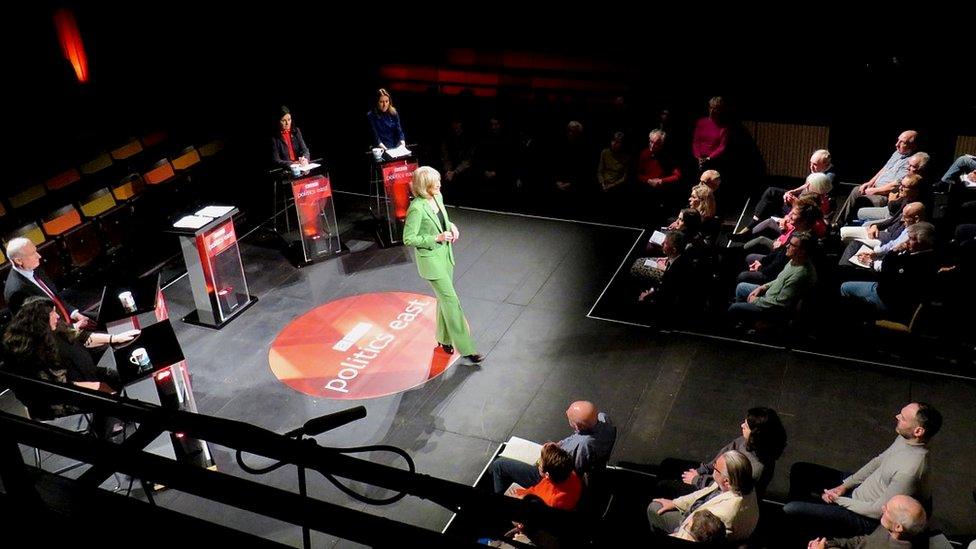
The invited audience included representatives of local businesses, Addenbrooke's and Papworth hospitals, Cambridge University and local residents
When asked by an audience member whether he supported the plan, Daniel Zeichner, Labour MP for Cambridge, said: "I want a transformed transport system for this city.
"People are spending 65 hours a year stuck in traffic jams in Cambridge. What a waste of time and damage to the environment, damage to people trying to get to work and small businesses.
"We have a chance to have a transport system fit for this city. We all know that for so long this city has struggled with transport.
"We need a new bus system that is cheap, reliable and that people can believe in. I think it is worth having a try."
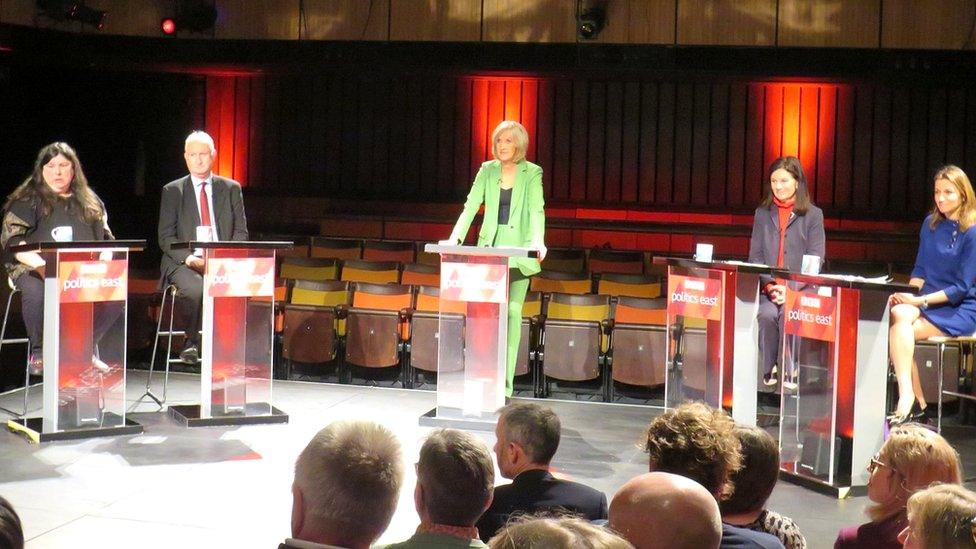
Amelia Reynolds hosted the BBC Politics East debate
Lucy Frazer, the Conservative MP for South East Cambridgeshire, said: "I'm totally against the charge because of the impact it's going to have on my constituents who have absolutely no alternative to get into Cambridge, other than by using their cars.
"They are going to be charged when there is no alternative. I've spoken to businesses that are really concerned about the impact on their customers and on their staff.
"I've spoken to people who work within the health sector, at Addenbrooke's [Hospital] who are concerned about staff who work there and people who use the services, who are going to be charged."
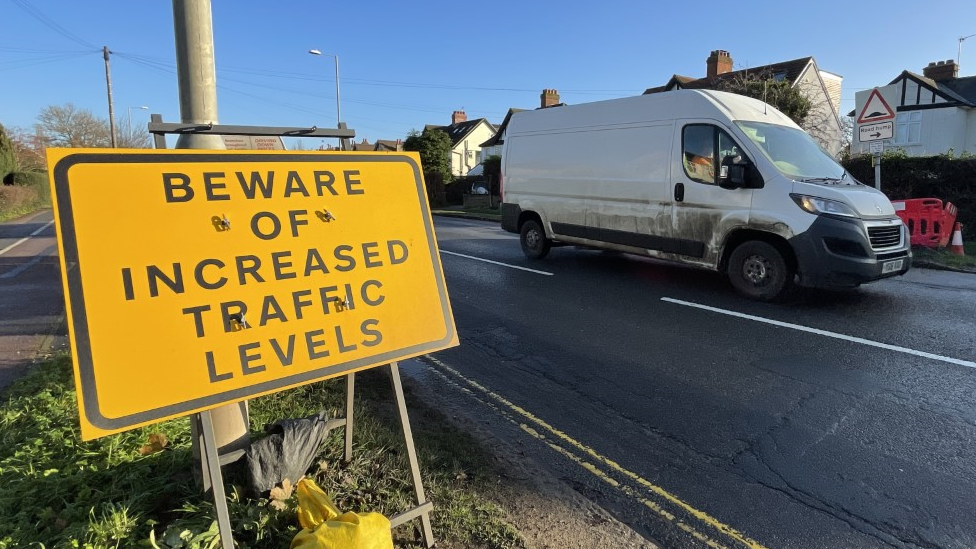
Drivers would be charged at least £5 if they drive into or around Cambridge between 07:00 and 19:00 on weekdays
Bridget Smith, the Lib Dem leader of South Cambridgeshire District Council, said she needed further information from the consultation before deciding if the proposals were the "right answer".
But she added: "I drove here today because I have no choice. I live in Gamlingay. There's no bus service here but I'm privileged because I've got a car. For an awful lot of people, they don't have that choice.
"We also have 20% higher carbon emissions in Greater Cambridge than the rest of the country. The only way we are going to deal with that is take cars off the road. And congestion is bad for people's health and well-being."
£50mAmount expected to be raised, after costs, from charges to enter or drive within the zone
Daily flat fee for HGVs£50
Daily flat fee for vans£10
Daily flat fee for cars£5
Naomi Bennett, leader of the Green group on Cambridge City Council, said the debate was not just about "yes and no".
"The Greens want to see better public transport and fairer choices. The problem we have with this consultation is that it is very much a work in progress and not a final product," she said.
"So yes we are keen to see better public transport but my party has also submitted 11 pages for improvements to the current consultation that we are keen to see.
"This debate cannot be about yes and no. What we have to do is listen to each other and find a consensus that works for all of us."
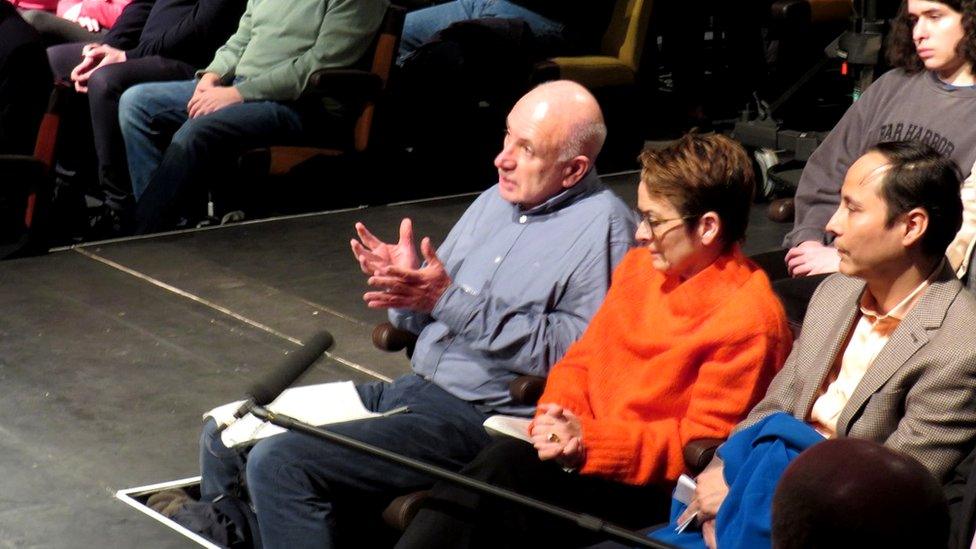
Dr Michael More, chairman of Addenbrooke's Hospital, said the issue of improving transport in Cambridge was important to debate
Addenbrooke's Hospital would be within the congestion charge area.
Dr Michael More, chairman of Addenbrooke's Hospital, said: "We welcome the debate. I think everybody knows that transport is grinding to a halt in Cambridge. We do have a problem. 'Can we improve public transport sustainably?' would be a fundamental question for our staff.
"We employ 13,000 people. Some of our staff are very much against it. Some of our staff can see the benefits of it. So I welcome a debate so we can satisfy ourselves that public transport can be improved and cycling measures can be improved."
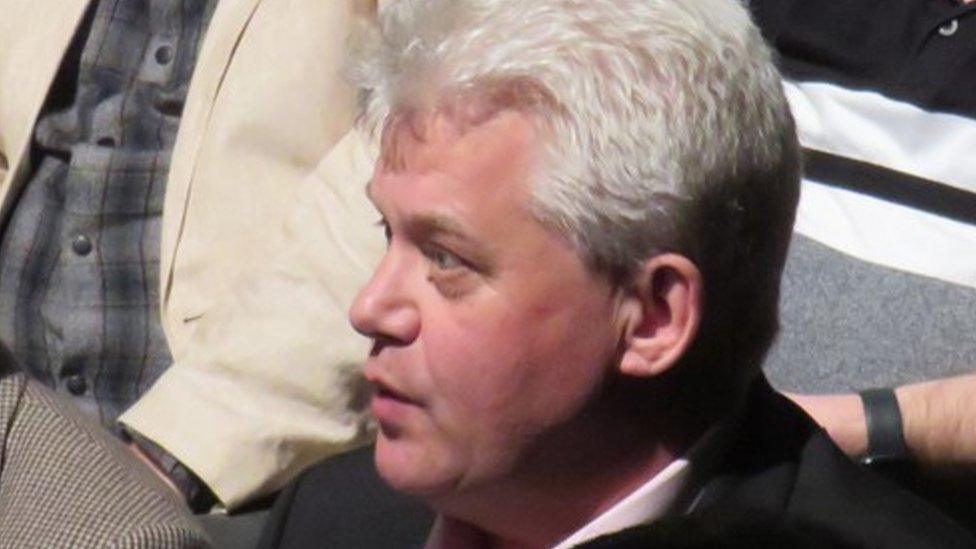
Prof Andrew Neely, Senior Pro Vice-chancellor of the University of Cambridge, wants to see an improved transport system
Prof Andrew Neely, Senior Pro Vice-chancellor of the University of Cambridge, said the university wanted to see an improved transport system and was talking to the GCP about its plans to double its investment in buses.
Candy Richards, of the Cambridgeshire Federation of Small Businesses, said she was concerned small firms would "carry the cost" of the congestion charge.
Cambridge congestion charge plans are a concern for some businesses, the debate was told
She said a survey found that 66% of small traders needed access to a vehicle.
Shapour Meftah, of the Mill Road Traders' Association, said businesses would "suffer" or have to "pass on the fee to their customers".

Analysis
By Ben Schofield, BBC East Political Correspondent
Let's start with the areas of agreement.
Pollution and congestion: bad. Better buses in the city and county: good. That much seemed clear from all sides.
A consensus also emerged that the current proposals needed changing before they could be put in place.
The disagreements were over just how much to change them - or whether charging drivers should be dropped altogether.
But alternative ideas for raising funds for buses - or the precise stipulations about what needs to change and how - were frustratingly more difficult to spot.
Yes, there are 24,000 consultation responses being crunched by the GCP, which may propose revisions in the summer.
And the trouble with tweaking the plan is that with each tweak comes the risk it won't deliver the promised benefits.
Oonagh Monkhouse, from Papworth hospital, in the audience, said the way the debate over this is handled is important. Staff, she said, are wondering about their futures.
They aren't the only ones.

You can see more on this story from Politics East on the BBC iPlayer.

What's your view on the Cambridge congestion charge plan? What do you feel its impact, if approved, will be on life in the city? Email: haveyoursay@bbc.co.uk, external.
Please include a contact number if you are willing to speak to a BBC journalist. You can also get in touch in the following ways:
WhatsApp: +44 7756 165803
Tweet: @BBC_HaveYourSay, external
Please read our terms & conditions and privacy policy
If you are reading this page and can't see the form you will need to visit the mobile version of the BBC website to submit your question or comment or you can email us at HaveYourSay@bbc.co.uk, external. Please include your name, age and location with any submission.

Find BBC News: East of England on Facebook, external, Instagram, external and Twitter, external. If you have a story suggestion please email eastofenglandnews@bbc.co.uk, external
- Published3 February 2023
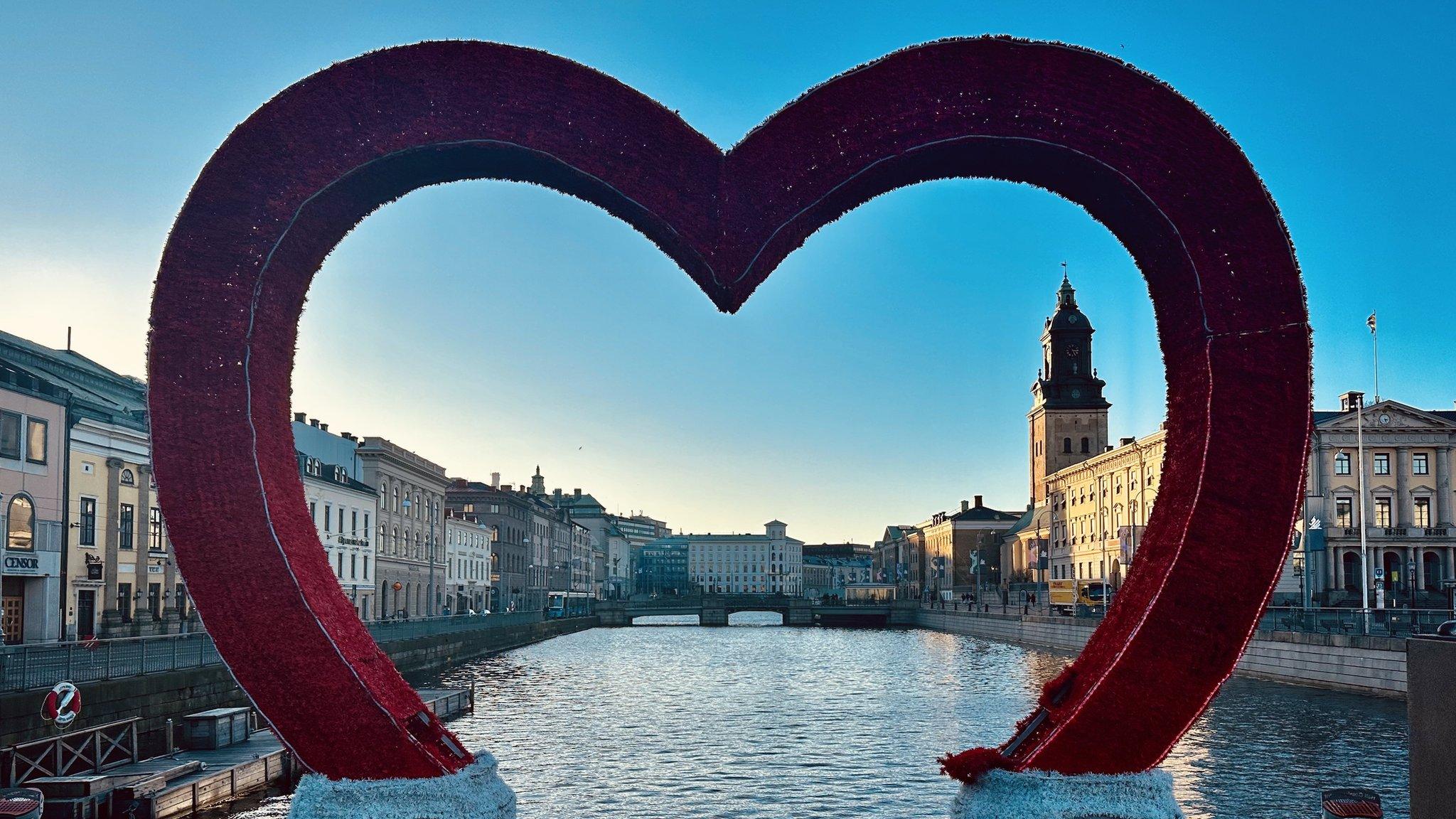
- Published21 December 2022
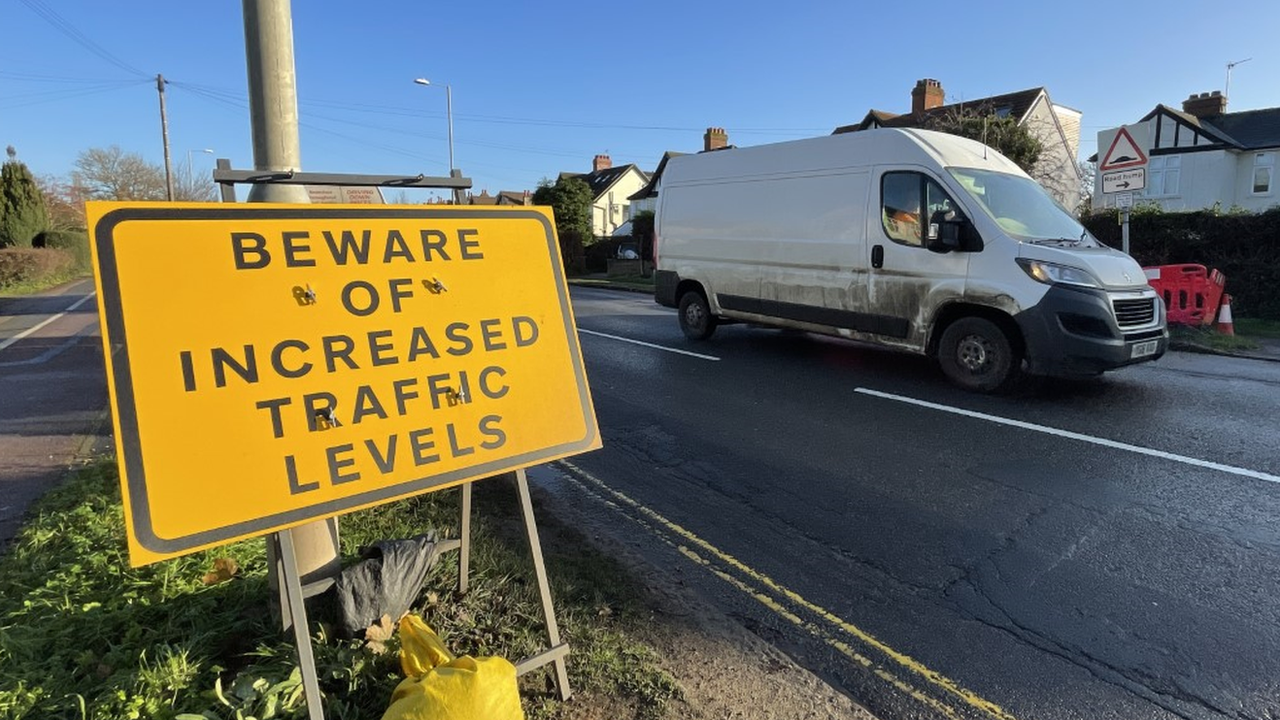
- Published10 December 2022
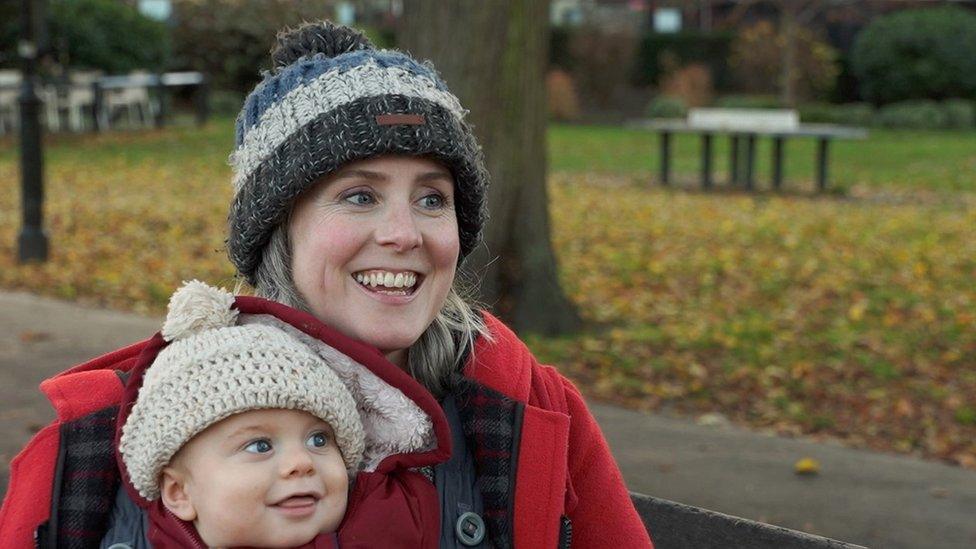
- Published29 September 2022
